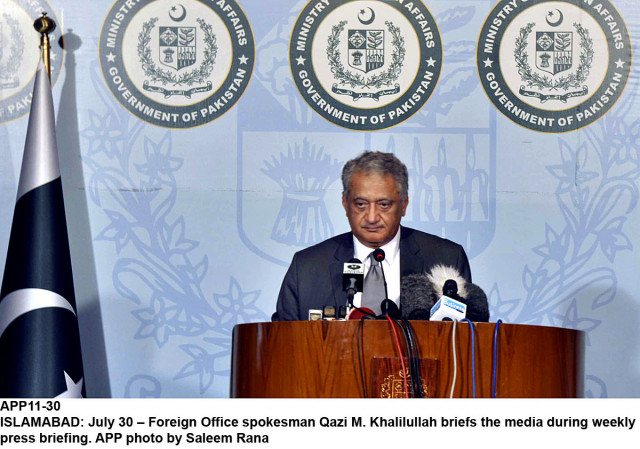Dangerous games
Hasty statements which are hostile in nature don't help matters, simply play into hands of those seeking anarchy

Foreign office spokesperson Qazi Khalilullah. PHOTO: APP
All this will of course add to the heightening tensions between the two countries. This is not good news. It is difficult to say if planned meetings such as that between the national security advisers of both countries will now go ahead. Pakistan has said it remains committed to the peace process, but clearly this process is now in jeopardy.
We need to ask some tough questions. The reality is that in the past, non-state actors in both countries have stepped in to sabotage efforts to foster peace between Islamabad and New Delhi. We have seen such events unfold before us. It is not insignificant that the Gurdaspur incident took place only weeks after the prime ministers of both countries had met in Russia and agreed that there should be a move towards the normalisation of ties. Are we seeing deliberate efforts by non-state actors to prevent this from happening? The matter needs to be investigated in some detail.
It is also important that the process of holding talks continues. The only way to sort out issues is through negotiation and discussion. Pakistan and India need to work together to eradicate militancy. There are really no other options. Hasty statements which are hostile in nature do not help matters and simply play into the hands of those seeking to prevent peace between the two nations which need to work together in order to ensure regional stability and also create the kind of cooperation necessary to build a better life for people on either side of the border. It is this that we should be working towards.
Published in The Express Tribune, August 1st, 2015.
Like Opinion & Editorial on Facebook, follow @ETOpEd on Twitter to receive all updates on all our daily pieces.















COMMENTS
Comments are moderated and generally will be posted if they are on-topic and not abusive.
For more information, please see our Comments FAQ